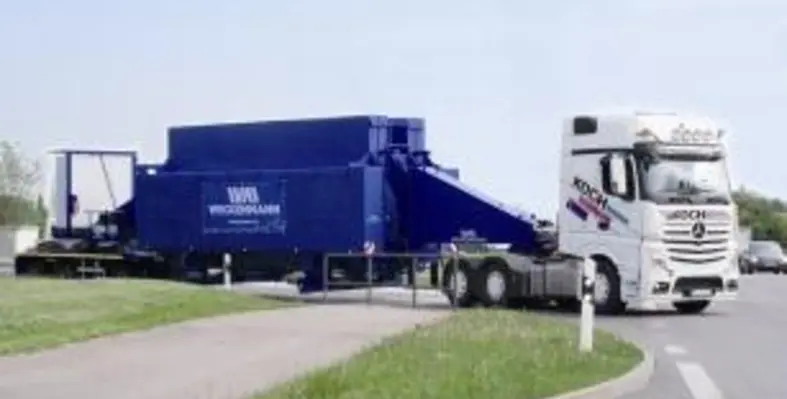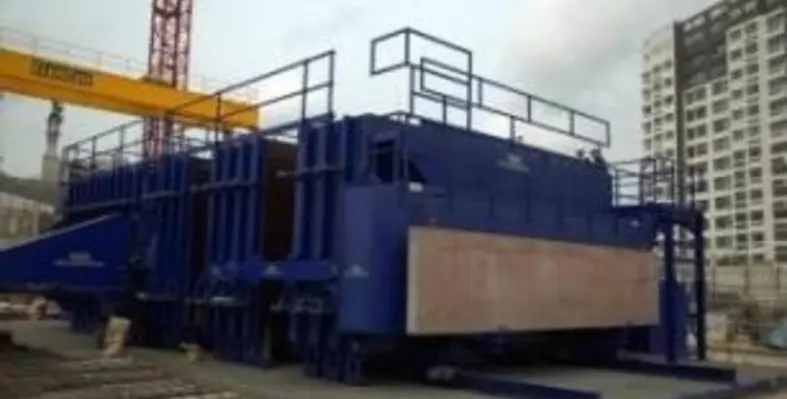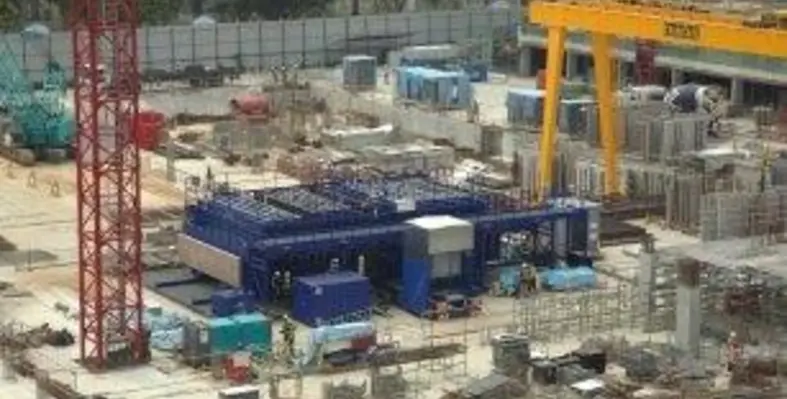The response from customers was exceptionally positive when Weckenmann Anlagentechnik GmbH & Co. KG presented its innovative concept of the transportable formwork
The reason for this is that using this technology the production of flat precast concrete elements can be directly relocated to where it is needed: to the immediate vicinity of the construction site. This represents a great advantage in view of the growing worldwide urbanisation and the associated necessity to build large numbers of homes in a constantly high quality. Precast concrete elements are generally used for this. However, there are often no stationary precast plants nearby, making transport distances long and the building project unprofitable.
Precast Concrete Technology offers many advantages
Using precast concrete elements offers significant advantages in the construction process. Prefabrication, for example, allows a high degree of completion and ensures predictable construction site logistics. Furthermore, the precast wall is smooth on both formwork sides and generally requires no further finishing. Another aspect worth mentioning is the much faster construction. In addition, the precast parts can be produced and stocked on the construction site.
The transportable precast factory

The battery mould concept has the great advantage that it can accommodate relatively large formwork capacity in a confined space: it fits into an area of approximately 20 x 30 m and manages output of 300 to 400 m² concrete parts per day. In general, the Battery Mould is ideally suited for the production of solid walls. The concept allows that the heavy and large main components of the Battery Mould, the fixed central part and the movable exterior components, as well as the hydraulic and electrical equipment, can easily be transported while it does not exceed maximum transport dimensions and permissible axle load according to world-wide applicable standards. A special feature of the MBM is the controllable trailer, which improves the trailer's maneuverability significantly. This is especially important after the conclusion of the work, when the mould sometimes has to find its way out of very confined conditions on the site.
The Mobile Battery Mould (MBM) offers the construction site all the advantages of the precast technology and avoids the disadvantages, which are caused in particular by additional transport. There are many regions with local manufacturers of precast concrete elements that are able to supply large construction sites with suitable products but transport distances are often too long and thus non-economical. Furthermore, long transport distances involve further risks: the product can be damaged or there may be no suitable means of transport. Besides, the infrastructure may not allow the transport of heavy precast concrete elements or the unpredictable traffic situation of the Megacities impede a predictable construction timetable when the elements will be on-site. This problem can only be addressed by providing appropriate storage facilities of the elements on site.
The mobile field factory from Weckenmann is an ideal solution for large building sites: its investment costs are manageable, it produces just in time and it is enormously flexible. Thanks to its compact design it has a relatively small footprint and can be assembled or disassembled by a small number of people in just a few working days. The production process is accordingly easy to handle and includes a highly effective compaction facility in order to compensate for any fluctuations in the concrete quality. In addition, the optimal use of the hydration heat for the curing process and the possibility to preheat the formwork make the Mobile Battery Mould (MBM) very energy-efficient. The precast concrete elements are characterised by their high quality. Proof of that is the formwork-smooth surface on both sides.

Sustainability
A comparison of the Environmental Performance of a stationary precast plant in relation to the Mobile Battery Mould yielded in annual fuel savings of 36,000 liters of Diesel – assuming that 50m³ of concrete will be processed per day and the precast concrete plant is located 50km away from the construction site. This corresponds to CO2 savings of about 100 tons.
A further argument for the sustainability of the MBM represents the small energy requirements for the operation of the Battery Mould and the reusability of all components involved over many years.
MBM® nominated for bauma Innovation award 2016
Every three years, VDMA, bauma and the head organisations of the German construction industry honour forward-looking developments with regard to construction equipment, building material and mining machinery, as well as buildings/ construction processes with an innovation award. In 2016, the prize was awarded for the eleventh time. The jury assesses the sustainability and the practical use of the innovations. Selection criteria include cost efficiency, performance improvement, energy and resource efficiency, as well as contribution towards environmental protection, humanisation of the workplace and image enhancement of the industry. The Innovation Award is presented in five categories: Machinery; Components; Construction Process/Construction Work; Research; and Design. In total 118 applications were received from Germany and abroad. The jury has selected three new developments in each category to go forward to the final round. All of the nominated innovations offer significant practical benefit and economic potential, they are sustainable and they make a contribution towards energy- and resource-efficiency and/or towards the humanization of the workplace. Weckenmann was nominated in the category machine with the „Mobile Battery Mould (MBM®) “.














